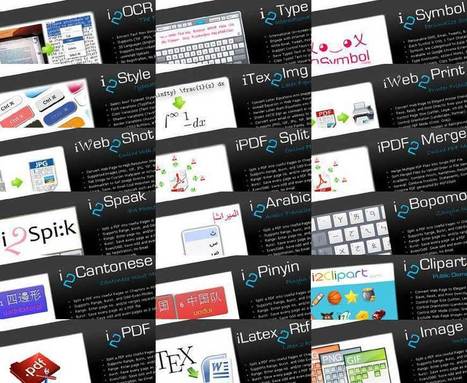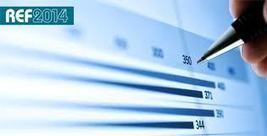This paper explores the potential of digital badges in higher education. A digital badge is a clickable graphic that contains an online record of 1) an achievement, 2) the work required for the achievement, 3) evidence of such work, and 4) information about the organization, individual, or entity that issued the badge. Mozilla has created an Open Badges Infrastructure (OBI) standard that includes a display platform called the Badge Backpack so that badge earners will have a free, hosted, public location for management and display of their digital badges. Thus, badges earned by individuals from disparate organizations that use custom badging platforms may be aggregated in one location for others to view.
Get Started for FREE
Sign up with Facebook Sign up with X
I don't have a Facebook or a X account

 Your new post is loading... Your new post is loading...
 Your new post is loading... Your new post is loading...
Current selected tag: 'papers'. Clear
In knowledge society, there is currently a call for cultivating a combination of media literacy and information literacy. This, however, requires cooperation from these two separate fields of study, and uncertainty regarding their boundaries hinders a smooth merger. It is unclear whether they are subsets of each other or separate entities. In this study, we have explored the relationship between these two fields by empirically mapping out their territories and discussing their similarities and differences. We have made use of the Web of Science database to delineate the content and boundary of these two fields. Our findings from 1956 to 2012 show that the two fields have different authors, university affiliations, and journals; they also differ in terms of academic origin, scope, and social concern. Information literacy has a closer tie to library science, while media literacy is more related to media content, media industry, and social effects. Due to their different academic orientations, the two fields adopt different analytical approaches. We have found that media literacy is not a subset of information literacy as some scholars have suggested, although the two fields have similarities. They share the same goal, and their publications overlap in terms of subject areas, countries of origin, and titles. The two fields could find common ground by cooperating together to contribute to the promotion of new literacy in knowledge societies.
Sciweavers is an academic network that aggregates links to research paper preprints then categorizes them into proceedings. The preprint links of a given proceedings are sorted using different mechanisms derived from our traffic to help researchers quickly discover top ranked papers. Also, Sciweavers offers several free online tools to improve your productivity.
I'm a business education researcher and I do pretty much all of my academic reading digitally. It saves time, effort and makes going back over your notes so muc |
Zotero is a powerful, easy-to-use research tool that
nformation has become increasingly complex, as have the mechanisms for accessing and manipulating it. Online growth has been dramatic and rapid, with “90% of all the data in the world… generated in the last two years” (SINTEF, 2013). The Association of College & Research Libraries (ACRL) suggests that an escalating and complex information environment causes “diverse, abundant information choice” in academic studies, the work place, and in personal lives. Compelling evidence illustrates the positive and tangible impact of information literacy and research skills: Assessment data links a higher GPA to an information literacy course for undergraduates, provided and taught by Entrepreneurial Library Program (ELP) librarians (Norton, 2013).According to a recent case study, 87% of students at Columbia University reported that the strength of their papers increased significantly as a result of using information literacy resources (CredoRef, 2012).First-year students who use the library during their first semester have higher grade point averages and student retention, according to a recent study from the University of Minnesota (Soria, 2013, p.162).
The Future of Information Literacy in Higher EducationThis prospectus from the ACRL task force charged with revising the ACRL Information Literacy Standards (2000) highlights the likely introduction of 'threshold concepts' and 'metaliteracy' as features of the new statement of standards. They frame these two elements with the idea of a holistic view of educated information use and the idea of lifelong learning as opposed to a skill set that can be taught and "learned once and for all." In a coming post I will speak in more detail as to what we are doing at SUNY Oswego in regard to threshold concepts and metaliteracy, and also how our work on a Cognitive Apprenticeship approach strengthens learning through continuous practice. I want to emphasize the holistic aspect but for now will only point out that other things on this blog already address that thoroughly.
Full copy at: http://crl.acrl.org/content/70/6/515.full.pdf
So it’s REF (Research Excellence Framework) time again and the game of which publications to submit, and I have to say I am not having a good time. Publications are rated on a scale of 1 - 4, which 4 being internationally excellent. My book ‘Designing for learning in an open world’ was reviewed as ‘a major contribution to educational technology’, a strong three with elements of four. Hmmm who uses the phrase ‘Educational Technolog’ these days? Gutted. If that isn’t a four nothing I have done is! A chapter in a UNESCO/COL book on a review of Open Educational Resources and the OPAL initiative was reviewed as a strong three. |













